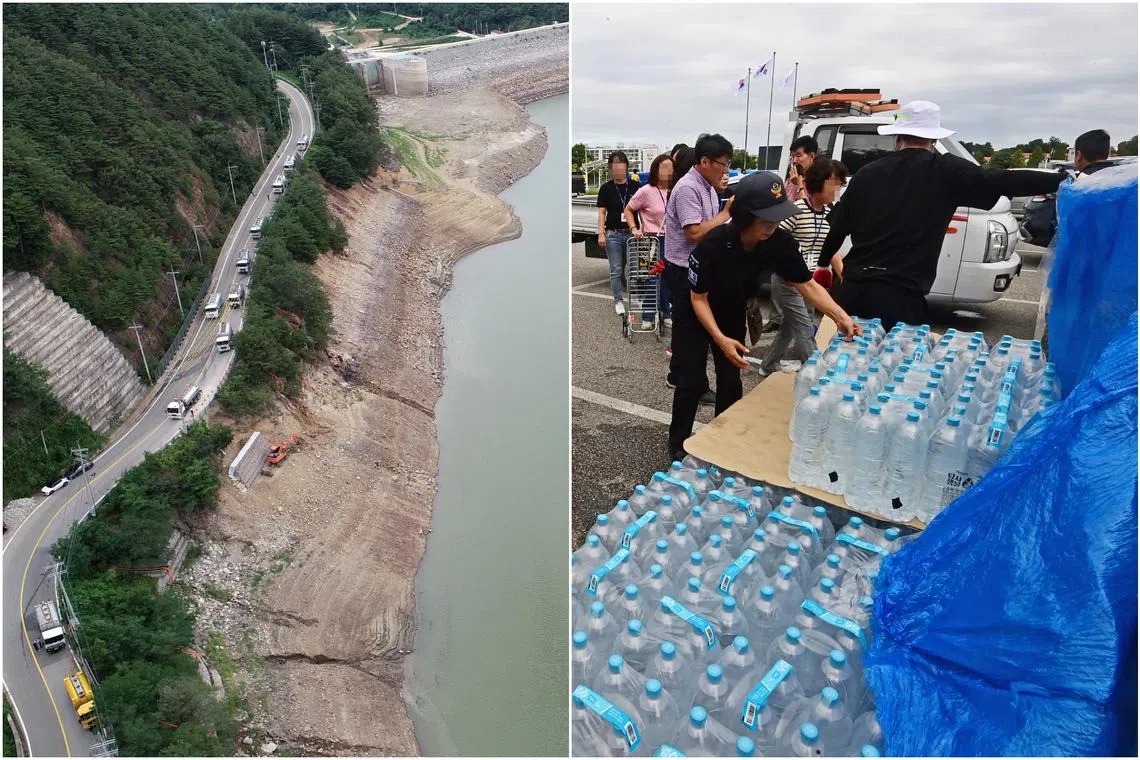Drought forces drastic water restrictions in South Korean city Gangneung
Sign up now: Get insights on Asia's fast-moving developments

Residents receiving rationed mineral water (right), as the water level of Obong Reservoir (left) fell to 13.3 per cent of normal levels in Gangneung on Sept 5.
PHOTOS: EPA
Seoul - An unprecedented drought has led a South Korean coastal city to significantly restrict water use in many people’s homes, close public restrooms and scrap sports events, officials said on Sept 5, underscoring the country’s climate woes.
President Lee Jae Myung last week declared the eastern city of Gangneung a national disaster area, and residents face water supply restrictions.
The dry spell has forced the authorities in the city of 200,000 people to shut off 75 per cent of household water meters, leaving residents with considerably lower-than-usual water pressure.
On Sept 5, city mayor Kim Hong-kyu said water supply will be cut off to 123 sites, comprising 113 apartment complexes and 10 large hotels.
According to the city, their tanks should last two or three days, after which emergency deliveries by tanker trucks will begin.
“Gangneung is currently experiencing its worst drought in 108 years since meteorological observations began,” Mr Kim told reporters.
“We can survive this drought only if we all conserve and use water sparingly.”
Gangneung this week closed all municipally run sports facilities – including swimming pools, tennis courts and a golf club – to ease water shortages, an official with the city government said.
In a separate statement, the city said the decision was to “cope with the prolonged drought after water levels at Obong Reservoir, the city’s main water source, fell sharply to below 15 per cent”.
A national third-tier football match will be played without spectators, while other sports events are being cancelled or postponed.
Some Gangneung residents had to pick up large water bottles at drive-throughs, and municipal workers were also distributing them to apartment complexes.
Gangneung has received 38.77cm of rain over the past six months, just 45.3 per cent of the average.
South Korea this week said it endured its hottest summer on record in 2025, beating the previous mark set in 2024.
Earlier in 2025, South Korea was hit by the country’s deadliest wildfires in history, which were fanned by high winds and ultra-dry conditions. AFP


